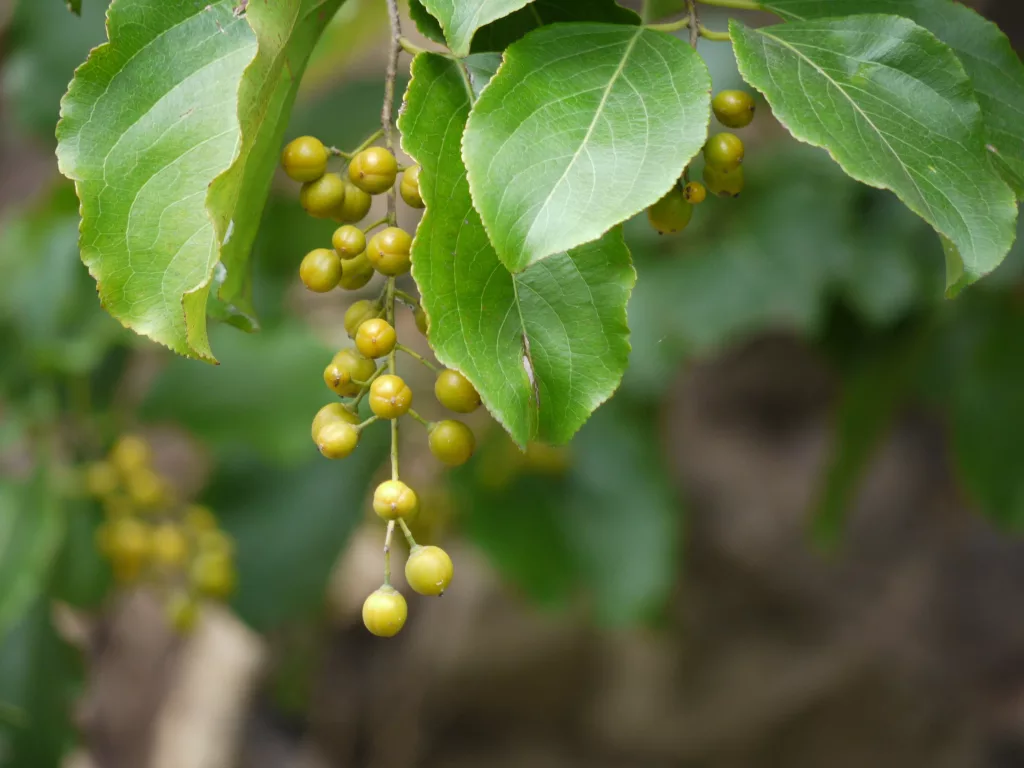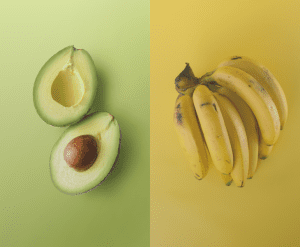
Forgetting things you thought you remembered? Having trouble grasping certain concepts? Intellect Tree could be the answer you need.
Intellect Tree is a large deciduous climbing shrub that can reach heights of around 10 metres and is typically found in humid, mixed deciduous or evergreen forests. As a rambler by nature, this plant produces numerous woody branches that cling to nearby vegetation for support. They grow on single stems, which can be light or dark green.
The branches are relatively smooth, reddish-brown in colour and densely covered with elongated whitish lenticels. The lenticels are openings designed to facilitate the diffusion of gases or respiration. It has elliptic-ovate or obovate leaves, serrated on both sides.
The panicles, which vary in length from 5 to 20 cm, are adorned with greenish-yellow flowers measuring 3.8 mm in diameter. The capsules, 1-1.3 cm in diameter, have three lobes and are bright yellow in colour.
The medicinal uses of the Intellect Tree:
- Improves menstrual flow and relieves dysmenorrhoea.
- Stimulates the brain to reduce memory loss and dementia.
- Used to relieve dysentery and stomach pains.
- Effective in the treatment of beriberi.
- Used to treat skin ulcers, sores and infectious skin conditions.
- Relieves knee pain, joint swelling, inflammation and stiffness.
- Nerve stimulants to enhance intelligence and prevent neurodegenerative diseases.
How to use the Intellect Tree:
- Roasted Intellect tree seeds and China rose flower powder ease menstruation and reduce cramps. It is also a good treatment for dysmenorrhoea.
- Both seeds and oil can help with memory problems and forgetfulness. Intellect tree should be taken in milk in a dose of 5 to 15 drops, or as a powder with 1 gram of milk.
- Take some seeds. They need to be ground. Take a pinch in warm water every day for seven days to treat stomach pain and dysentery.
- Intellect tree oil is rich in vitamin B1. Vitamin B1 deficiency leads to beriberi. For this, 15 drops are added to milk and taken three times a day.
- Poultices made from the seeds are used to treat minor ulcers and wounds and infectious skin conditions such as scabies.
- Massage sore joints with oil extracted from Intellect tree seeds. The seed oil is also a key ingredient in many remedies for arthritis and muscle aches.
- Add 2-4 drops of Intellect Tree oil to milk and drink on an empty stomach in the morning to boost intelligence and prevent neurodegenerative diseases.
The seeds are completely surrounded by an orange-red aril and the stems can reach a diameter of 10 cm and a height of 6 m. The stems also have a rough, peeling bark, which is pale brown and densely covered with small, elongated lenticels.
This twining shrub, which belongs to the Angiospermae class and the Celastraceae family, grows at altitudes of between 1,800 and 2,000 metres throughout India. It is also found in Malaysia, Thailand, Indochina, China, Taiwan, Myanmar, Australia, Sri Lanka and the Philippines.
Intellect tree, whose scientific name is Celastrus paniculatus, is also known as black oil plant and climbing staff tree (Sanskrit: jyotishmati ज्योतीष्मती, Hindi: mal-kangani माल-कांगनी, Chinese: deng you teng 灯油藤).
Other names include climbing staff, intellect plant, oriental bittersweet, Celastrus, staff tree, Malkangni, Kangani, Jyotishmati, Sphutabandhani and Svarnalota.
Disclaimer: This is for informational purposes only.
Did you find this helpful? Let us know in the comments.
You can also visit our Facebook and YouTube pages to know more about plants and their health benefits.
You might also like:









1 thought on “Intellect Tree: The Best To Improve Cognitive Function?”